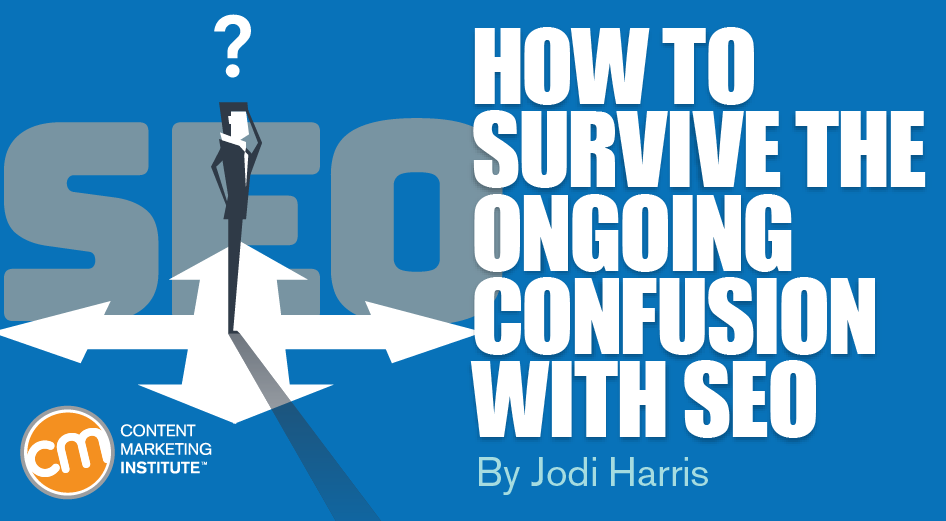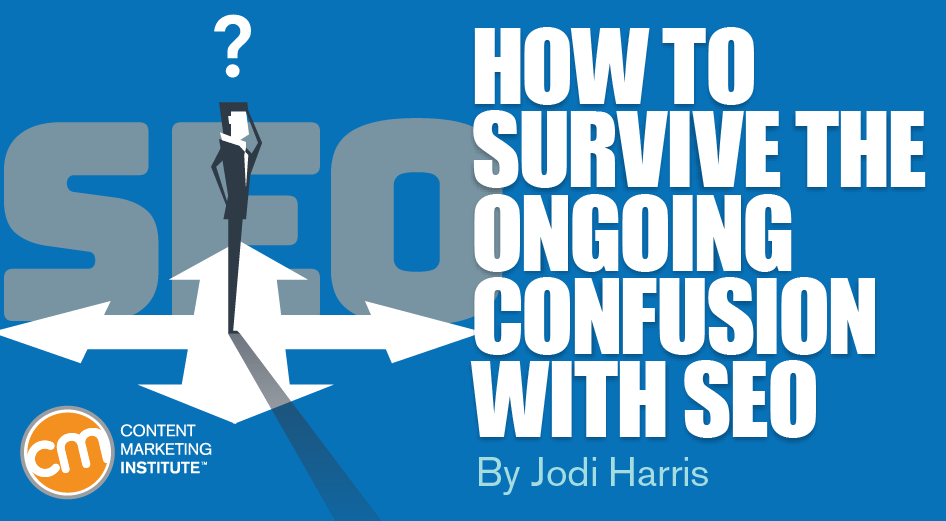Latest word on voice In her Content Marketing World presentation, Courtney discusses a sleeping giant among search ranking factors that’s poised to crush other factors under its tremendous weight – voice search. Why does it matter whether consumers search for information using their voice or their fingers? There’s not a lot of things that we can say, OK, I know this works because I can point back to this metric that shows that my traffic for voice is going up. Since the beginning of search, there’s been an altruistic exchange in play between content marketers and the big G: Brands allow search bots to crawl and index their site content for free in order to supply the useful information and answers consumers rely on search engine results pages (SERPs) to provide. They include: Emphasizing tools, interactive features, data-driven stories, and other types of content experiences that drive clicks rather than providing quick answers Doubling down on branded demand creation so that consumers are incentivized to search for you directly (rather than for broad keywords that you may or may not rank for) Creating content for the platforms Google prioritizes (e.g., YouTube, G News, Google Maps) Building brand profiles on the sites that rank well in your space and/or forging content partnerships with influential publishers that dominate the SERP for your top keywords Think beyond SERP-based metrics With Google seemingly set on cannibalizing brands’ traffic, another area where Courtney thinks marketers urgently need to make some changes is measurement: We have spent a lot of time as an industry using clicks and traffic as a metric for success, and we’ve called other things vanity metrics, but I think clicks and traffic are vanity metrics. As Courtney says: Just because you don’t get a click, it doesn’t mean you’re not building influence. It’s really hard to track that success back to that time that you showed up in the answer box. Ultimately, it builds influence and it makes people more likely to search you out as a brand in the future. As Courtney advises: One of the things with SEO is making sure that people stay engaged with your content and don’t leave and go back to the search engine results page and click to somebody else. Courtney presented at Content Marketing World 2018.

Search is one of the most vital – and misunderstood – components of a content distribution strategy.
The ongoing algorithm shifts initiated by the search engines make it hard to be confident that you’re doing everything you can to optimize content performance.
As part of CMI’s new Mastering Content Marketing video series, we asked Courtney Cox Wakefield, digital marketing manager at Children’s Health, to share her view on trends shaping the search landscape, and the challenges and opportunities they hold for content marketing.
You’ll find the highlights of our conversation filmed at Content Marketing World 2018 in the video below. Keep reading for a more detailed analysis of some of the key issues Courtney discusses. I also offer a few steps you can take to preserve your brand’s search influence and authority – even in the face of Google’s ongoing assaults on outbound link building.
New ranking factors rock the boat
One of the most talked-about shifts in the search world this year has been Google’s transition to mobile-first site indexing – i.e., crawling the mobile version of a site page to analyze its content and determine its ranking rather than using the desktop version.
Though Google insists that having your site content included in its mobile-first index is not a consideration in its ranking algorithm, the company notes (in a series of tweets) that overall mobile-friendliness of your site content is (and will continue to be) a ranking factor.

Mobile is really the most recent thing that’s made a big impact because Google used to look first at our desktop factors – so, what was going on our desktop – in order to figure out how they were going to rank us. Recently, within the last year, they have slowly started rolling out mobile-first rankings; so, they’re basically saying, ‘OK, we’re going to look first at the ranking factors for mobile. What are you doing on mobile, on your mobile site?’ Whether that’s a responsive site, or a separate mobile experience, or no mobile experience at all, they’re going to be ranking every search based on those mobile experiences.
Consider: In his analysis of the subject, SEO strategist Mike Murray contends that, whether or not mobile-first indexing directly affects rankings now, the fact Google shifted its priorities strongly suggests that meeting its high standards for mobile-friendliness and content quality is something marketers should pay extra attention to.
Latest word on voice
In her Content Marketing World presentation, Courtney discusses a sleeping giant among search ranking factors that’s poised to crush other factors under its tremendous weight – voice search.
Indications already are appearing that the growing smart-speaker market will make a huge dent in the way consumers search for information. For example, data from Alpine.AI reveals that over 1 billion voice searches are conducted every month, and comScore estimates that by 2020, 50% of all searches will be voice-based.
Why does it matter whether consumers search for information using their voice or their fingers? Well, for one thing (as I point out in my recent deep dive on the topic of voice technology), digital assistant devices deliver only one search result per inquiry.
This makes reaching the coveted top SERP spot a heck of a lot more important. It also makes the path to achieving this critical goal – and measuring the impact of your content’s progress to achieve it – a lot more complicated. It’s a pressing concern, Courtney admits, that the industry isn’t adequately prepared to handle:
Voice, the things that we can do for it now, they’re limited because we don’t have a lot of measurement for voice. It’s not separated out in our Google Analytics. There’s…

COMMENTS